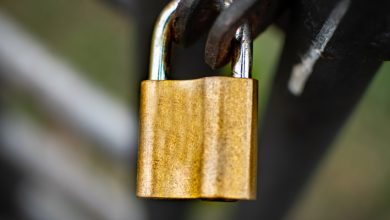How to Protect Your Crypto from Malware and Ransomware

- Understanding the Risks of Malware and Ransomware in the Crypto World
- Best Practices for Securing Your Cryptocurrency Wallets
- The Importance of Regularly Updating Your Antivirus Software
- Tips for Identifying and Avoiding Phishing Scams Targeting Crypto Users
- How to Safely Store Your Crypto Private Keys
- What to Do If Your Crypto Assets Are Held for Ransom
Understanding the Risks of Malware and Ransomware in the Crypto World
Understanding the risks associated with malware and ransomware in the crypto world is crucial for protecting your digital assets. Malware is malicious software designed to infiltrate and damage computer systems, while ransomware is a type of malware that encrypts files and demands payment for their release. Both can pose a significant threat to your cryptocurrency holdings if proper precautions are not taken.
Malware can infect your computer through phishing emails, malicious websites, or infected software downloads. Once installed, it can steal sensitive information such as private keys or login credentials, giving hackers access to your crypto wallets. Ransomware, on the other hand, can lock you out of your files until you pay a ransom in cryptocurrency.
To protect your crypto from malware and ransomware, it is essential to use reputable antivirus software and keep it updated regularly. Avoid clicking on suspicious links or downloading files from unknown sources. Additionally, consider storing your cryptocurrency in a hardware wallet rather than keeping it on an exchange or online wallet, as this adds an extra layer of security.
Best Practices for Securing Your Cryptocurrency Wallets
When it comes to securing your cryptocurrency wallets, there are several best practices you should follow to protect your assets from malware and ransomware attacks.
One important step is to use a hardware wallet, such as a Ledger or Trezor, to store your cryptocurrency offline. This provides an extra layer of security by keeping your private keys away from potential online threats.
Another good practice is to enable two-factor authentication (2FA) on all of your cryptocurrency accounts. This adds an extra level of protection by requiring a second form of verification before allowing access to your funds.
It’s also essential to regularly update your wallet software and operating system to patch any vulnerabilities that could be exploited by hackers. By staying up-to-date with the latest security patches, you can reduce the risk of malware infecting your device.
Avoid clicking on suspicious links or downloading files from unknown sources, as these can contain malware that could compromise your wallet’s security. Always verify the authenticity of any websites you visit and only download software from trusted sources.
Lastly, consider using a virtual private network (VPN) when accessing your cryptocurrency accounts online. A VPN encrypts your internet connection, making it harder for hackers to intercept your data and steal your private keys.
By following these best practices for securing your cryptocurrency wallets, you can minimize the risk of malware and ransomware attacks and protect your digital assets from theft.
The Importance of Regularly Updating Your Antivirus Software
Regularly updating your antivirus software is crucial when it comes to protecting your crypto from malware and ransomware attacks. Antivirus software helps to detect and remove malicious programs that can compromise the security of your digital assets. By keeping your antivirus up to date, you ensure that it has the latest virus definitions and security patches to defend against the newest threats.
When you fail to update your antivirus software regularly, you leave your crypto vulnerable to cyber attacks. Hackers are constantly developing new types of malware and ransomware to exploit security vulnerabilities. Without the latest updates, your antivirus software may not be able to effectively identify and neutralize these threats, putting your crypto holdings at risk.
To stay one step ahead of cybercriminals, make sure to enable automatic updates for your antivirus software. This will ensure that your security solution is always up to date without requiring any action on your part. Additionally, schedule regular scans of your system to proactively detect and remove any potential threats that may have slipped through the cracks.
Remember, investing in a reputable antivirus solution is only half the battle – keeping it updated is equally important. By taking this simple step, you can significantly enhance the security of your crypto assets and minimize the risk of falling victim to malware and ransomware attacks. Stay vigilant and stay protected.
Tips for Identifying and Avoiding Phishing Scams Targeting Crypto Users
When it comes to protecting your cryptocurrency from phishing scams, it’s essential to be vigilant and proactive. Here are some tips to help you identify and avoid falling victim to these malicious schemes:
- Always double-check the URL of any website you are visiting, especially when entering sensitive information like your crypto wallet details. Look for any misspellings or unusual characters that could indicate a phishing attempt.
- Be wary of unsolicited emails or messages asking you to click on links or download attachments. These could be phishing attempts designed to steal your cryptocurrency.
- Avoid sharing your private keys or seed phrases with anyone, no matter how legitimate the request may seem. Keep this information secure and never disclose it to anyone.
- Consider using a hardware wallet to store your cryptocurrency securely offline, away from potential phishing attacks targeting online wallets or exchanges.
- Educate yourself about common phishing tactics and stay informed about the latest scams targeting crypto users. Knowledge is key to staying one step ahead of cybercriminals.
How to Safely Store Your Crypto Private Keys
When it comes to safeguarding your cryptocurrency from malware and ransomware, one of the most crucial steps you can take is securely storing your private keys. Private keys are essentially the keys that unlock access to your cryptocurrency holdings, so it’s imperative to keep them safe from potential threats.
One of the safest ways to store your private keys is by using a hardware wallet. Hardware wallets are physical devices that store your keys offline, making them much less vulnerable to cyber attacks. By keeping your private keys offline, you significantly reduce the risk of them being compromised by malware or ransomware.
If you prefer to store your private keys digitally, make sure to encrypt them using a strong password. Additionally, consider using a secure password manager to store and manage your passwords securely. This will add an extra layer of protection to your private keys and make it harder for cybercriminals to access them.
Another important aspect of securely storing your private keys is to create backups. Regularly backing up your keys ensures that you can still access your cryptocurrency even if your primary storage method fails or gets compromised. Store your backups in multiple secure locations to minimize the risk of losing access to your funds.
Overall, the key to safely storing your private keys lies in using a combination of offline storage, encryption, and backups. By taking these precautions, you can protect your cryptocurrency from malware and ransomware attacks, safeguarding your investments for the long term.
What to Do If Your Crypto Assets Are Held for Ransom
If your cryptocurrency assets are ever taken hostage by ransomware, it is crucial to remain calm and assess the situation carefully. Here are some steps you can take to potentially recover your assets:
- Do not panic or rush to pay the ransom. Oftentimes, paying the ransom does not guarantee that you will get your assets back.
- Contact law enforcement authorities and report the incident. They may be able to assist in tracking down the perpetrators and recovering your assets.
- Seek assistance from cybersecurity professionals who specialize in dealing with ransomware attacks. They may have the expertise and tools to help decrypt your files.
- Consider restoring your assets from a backup if you have one available. This can help you avoid paying the ransom and potentially recover your assets.
- Implement stronger security measures to prevent future attacks. This may include using antivirus software, keeping your software up to date, and being cautious of suspicious emails or websites.
- Stay informed about the latest trends in cryptocurrency security and take proactive steps to protect your assets from malware and ransomware attacks.
By following these steps and remaining vigilant, you can potentially recover your cryptocurrency assets and prevent future attacks on your digital wealth.



